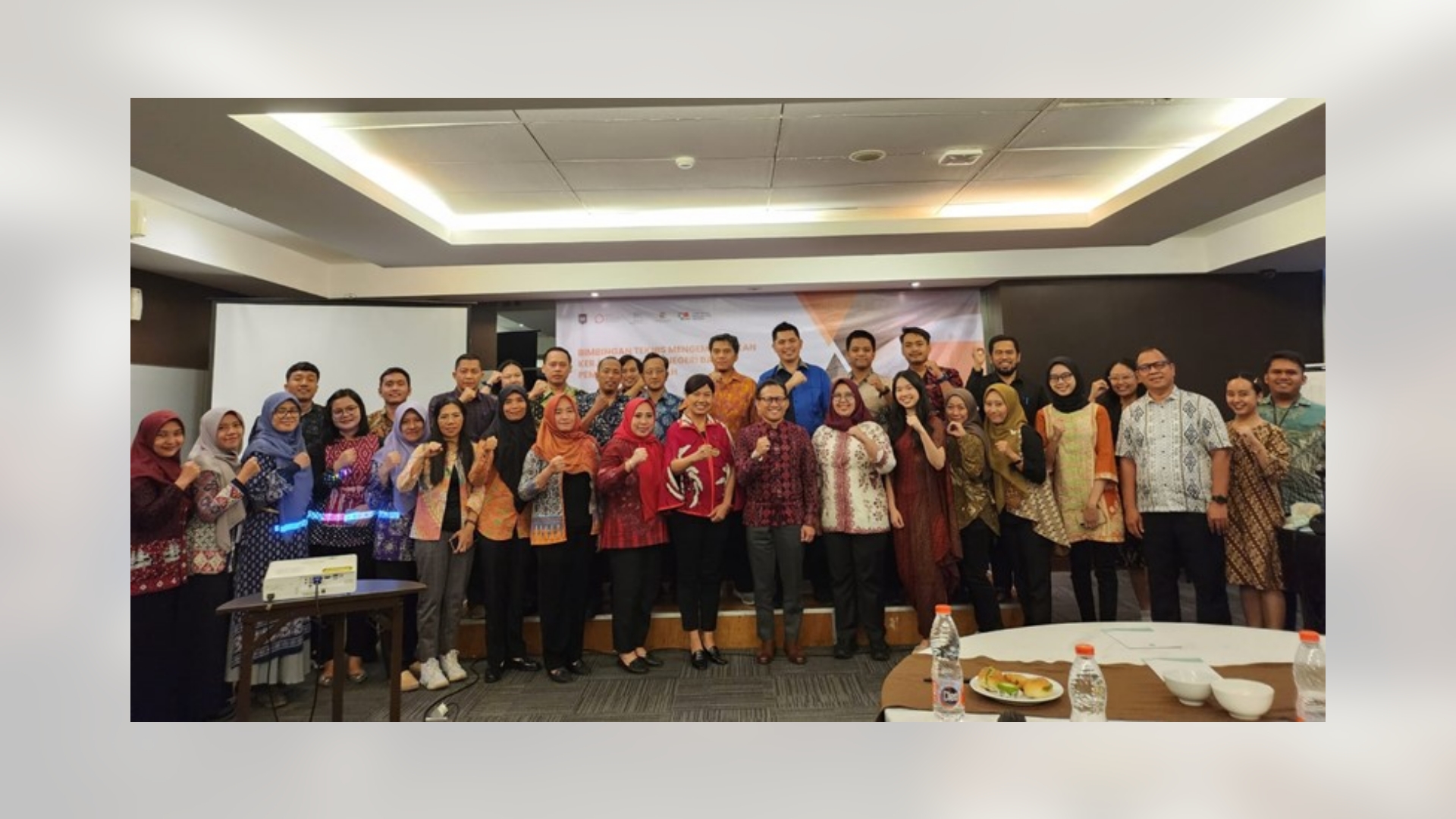November 22-24, 2023 | UCLG ASPAC, in partnership with the Indonesia Ministry of Home Affairs (MoHA) and the Open Government Indonesia (OGI), orchestrated a transformative Technical Training on Developing International Cooperation for Local Governments. This event, a continuation of the introductory session held online in May this year, provided expanded knowledge for local governments to initiate strategic collaborations and connected them with more diverse stakeholders.
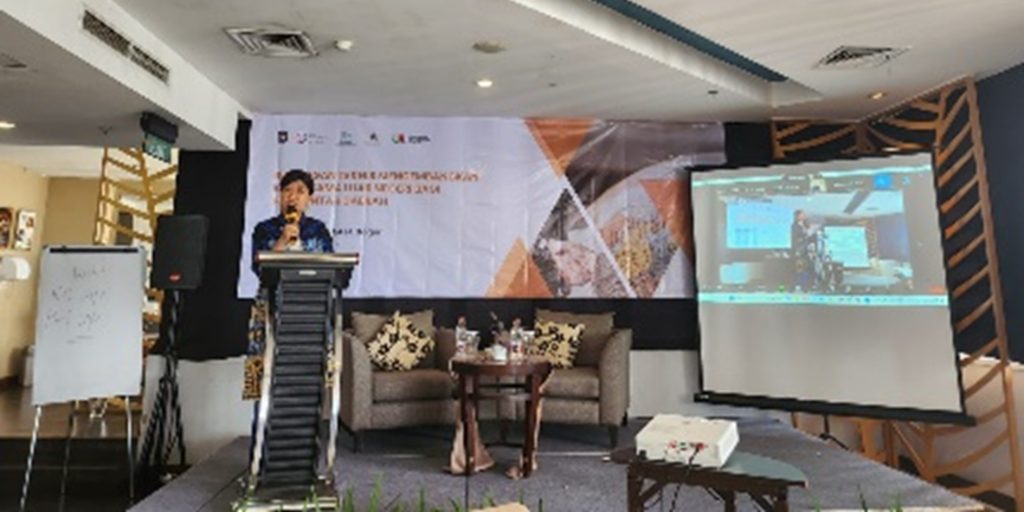
The event commenced with a gracious welcome from Dr. Bernadia Irawati Tjandradewi, the Secretary General of UCLG ASPAC, underscoring the critical importance of international cooperation for cities in expediting development achievements. She accentuated the pivotal role local governments play in implementing development initiatives and stressed the need for partnerships at regional and international levels, unlocking benefits such as technological advancement, economic cooperation, and socio-cultural exchanges.
Insights from Local Leaders: Day One Highlights
The panel session featured insights from esteemed speakers, including the Mayor of Lalmonirhat Municipality, Mr. Md. Rezaul Karim Swapan, Mr. Sunbae Lee from the Seoul Human Resource Development Centre (SHRDC), and Mr. Djoenedi Dodik Setiyono from the Surabaya City Government. The Mayor of Lalmonirhat Municipality highlighted collaborative initiatives with organisations such as Water Aid and SNV Netherlands, emphasised the strategic identification of opportunities for inter-regional cooperation by continuously learning from local challenges in sanitation, waste management, and technology, and identified challenges in this process, including sustainability initiatives, political dynamics, and logistical complexities. SHRDC presented insights into Seoul’s extensive international capacity-building efforts since 2008, offering 174 courses over 15 years that strategically focus on areas such as Smart Cities, Mobility and Transportation, Urban Management, Climate, and Environment. Additionally, they highlighted their successful implementation of mixed training approaches, incorporating both online and offline methodologies.
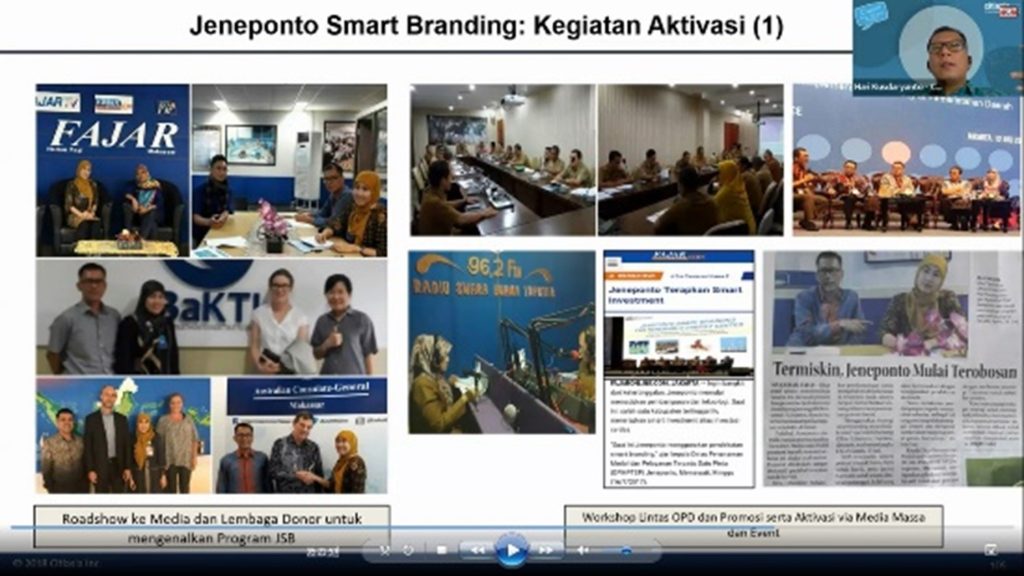
The discussion on “City Profiling and City Branding” highlighted key points, including the importance of holistic city branding that goes beyond slogans and logos, emphasising the development of robust tourism and business ecosystems. Tourism branding is supported by factors such as destination appeal, supporting facilities, and exceptional hospitality, while business branding strategies encompass conducive platforms, market-leading trade commodities, and an innovative investment ecosystem. The session emphasised systematic steps for developing a Smart City Branding Blueprint, including an initial study, blueprint creation, brand book development, and landscape planning. There was also a case study presentation from Bogor City, illustrating a successful sister city cooperation with Chiba Prefecture since 2016, covering various domains such as tourism, education, culture, and agriculture.
Day Two: Embracing Open Government Partnership
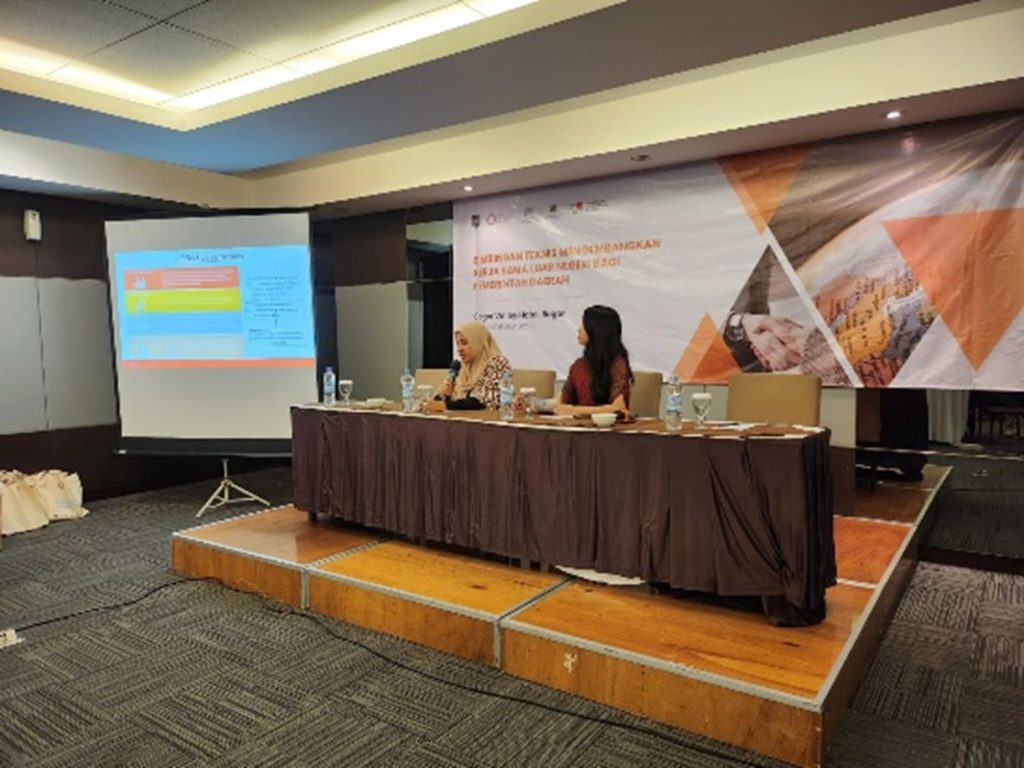
On day two, Ms. Maharani Putri S.W. highlighted the Open Government Partnership (OGP) as a form of international cooperation for local governments. Key insights from the session included critical factors for successful international cooperation such as mutual benefit, regional potential, political support, and transparency. The discussion also addressed challenges in international cooperation, encompassing national interest, volatility, and equality. She stressed on the instrumental role of open government performance in enhancing trust, transparency, credibility, and fostering integration. The day further explored topics like the importance of open government implementation, international relations in the context of globalisation, and legal drafting techniques for establishing a Memorandum of Understanding (MoU) with international institutions.
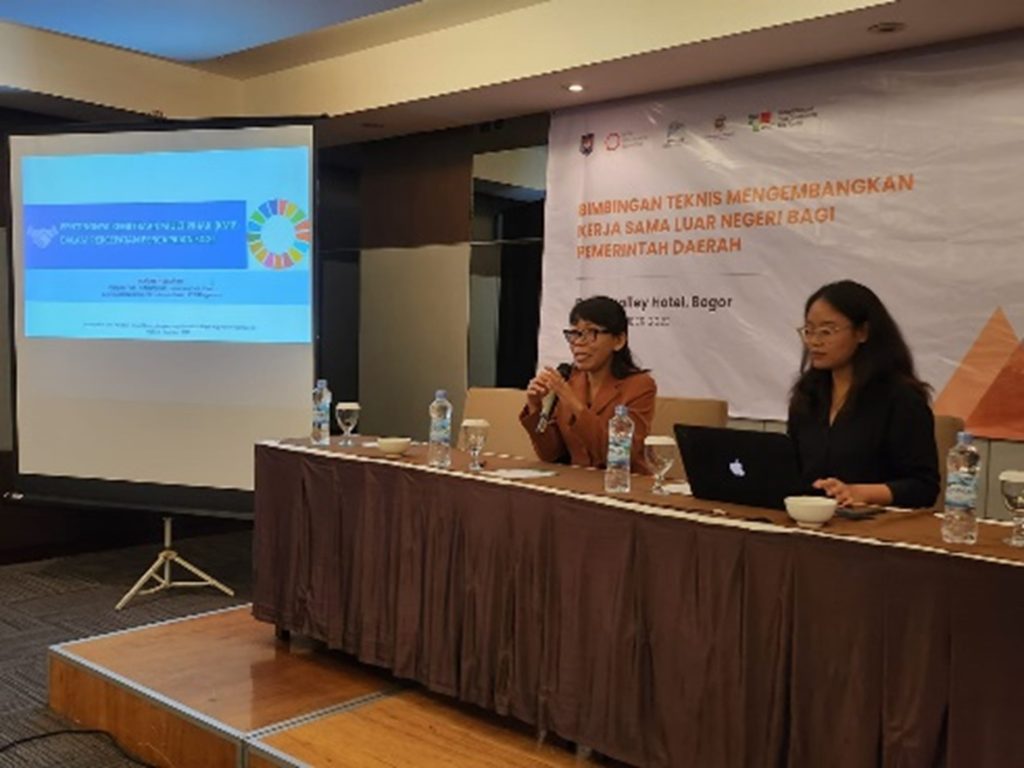
The session was enriched with presentations from Ms. Indriana Nugraheni, Legal and Governance Development Pillar Manager at the SDGs National Secretariat Ministry of PPN/Bappenas. She discussed the importance of open government implementation to promote successful foreign cooperation. Mr. Yohpy Ichsan Wardana, Secretary of the Directorate General for Multilateral Cooperation, focused on international relations in the perspective of globalisation, emphasising Indonesia’s membership and contribution to international organisations, aligning with the 2020-2024 Medium-Term Development Plan and actively participating in advancing world peace through international organisation membership. There was also Ms. Rika Fitriasari sharing insights into the legal drafting technique for conducting Memorandum of Understanding (MOUs) with international institutions.
Ms. Yoshimi Nishino, Chief of Social Policy at UNICEF, highlighted the significance of the UNICEF Child-Friendly City designation in enhancing a city’s quality of life for children. This designation ensures the respect of children’s rights and consideration of their needs in policies and programs, attracting investment and funding and demonstrating a city’s commitment to child well-being. It also elevates a city’s reputation as a leader in child rights, both locally and globally, fostering collaboration between different sectors to create a more child-friendly environment. Mr. Hendra Wahanu Prabandani, Director of Foreign Policy and International Development Cooperation, also shared good practices of foreign cooperation through South-South and Triangular Cooperation.
UCLG ASPAC highly appreciates the collaboration with MoHA and Open Government Indonesia in promoting international cooperation for local governments in Indonesia. Following the success of this event, UCLG ASPAC, Open Government Indonesia, and MoHA plan to conduct in-depth international cooperation training at the Asia-Pacific level, focusing on City Branding and City Profiling to further equip local governments in Indonesia in the area of international cooperation.
***








